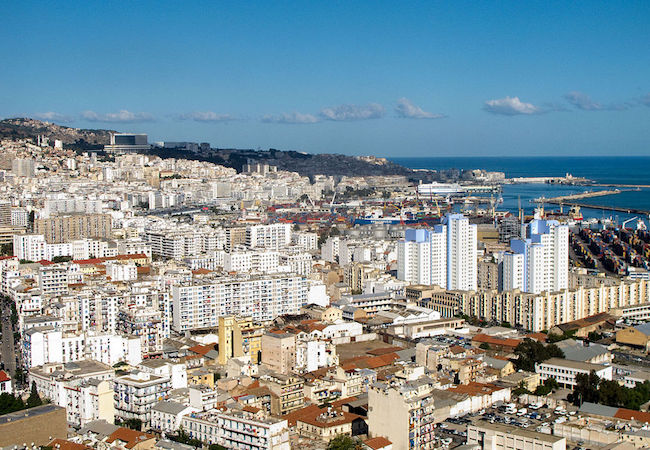Algeria’s belated Arab Spring

By Alvaro Vargas Llosa
A popular uprising against Algeria’s dictatorship has forced President Abdelaziz Bouteflika, the ailing autocrat who has presided over the country since 1999, to postpone indefinitely the April “election” that was supposed to give him a fifth consecutive term.
Algeria is the country to which the international community expected the riots that began in Tunisia in 2010, which became known as the “Arab Spring,” to spread quickly and forcefully. Despite minor attempts to destabilize Bouteflika, that didn’t happen.
This gave the dictator and former soldier, and the ruling National Liberation Front (FLN), the wrong idea. They misread the situation as confirmation that their sophisticated mix of nationalism, socialism and co-option of Islamist groups had succeeded in pacifying the public, the dream of every dictatorship.
That could never be the case—unless Algerians were Martians.
The same people have run the country for decades, stifling dissent whenever necessary and allowing small doses of free expression and political participation when it was convenient, under a grossly inefficient and corrupt command economy that redistributed the country’s oil and gas money, the only thing it produces.
At the end of the 1980s, following major riots, the FLN had in fact experimented with limited pluralism and freedom of the press. The result, in those hopeful years, was the emergence of a powerful theocratic organization, the Islamic Salvation Front, that won the first round of the elections in 1991.
The government then staged a self-coup, canceled the elections and put a lid on the political opening. What ensued was a period of horrific violence, with
the various anti-government groups warring among themselves while the military battled the armed wing of the Salvation Front and other Islamic terrorists. Hundreds of thousands of innocent civilians lost their lives before the military was able to prevail.
Bouteflika, who assumed power in 1999, subsequently tried to ease up a bit, allowing Algeria’s 30 million people to speak more freely and play a somewhat larger role—in theory, if not in fact—in the country’s political life, replacing brute force as the means to control the traumatized and weary population.
It’s during this period that Bouteflika and his cronies changed the Algerian constitution, permitting the dictator to hold onto power beyond the previous two-term limit and continue to govern after a stroke confined him to a wheelchair and rendered him almost unable to speak.
This same man who seldom appears in public and spends a good deal of his time seeking medical care in Switzerland intended to set himself up for a fifth consecutive term in a farcical “election” scheduled for April 18.
But the Algerian people—now numbering more than 41 million— apparently have decided enough is enough, taking to the streets in massive demonstrations that have surprised the world and forced Bouteflika to postpone the electoral charade.
The people of Algeria rebelled in the 1980s because they were dissatisfied with replacing colonial rule with independent authoritarianism. It is now decades later and they are still dissatisfied.
Algeria’s failure to establish a pluralistic system in which civil society could thrive economically and culturally has facilitated the incubation of fanatical Islamism in opposition to the status quo. That has been the tragedy of most Arab countries, where liberal minorities routinely are frustrated by the ongoing power struggle between secular, corrupt military rule and totalitarian theocracy.
No matter how sophisticated the system and weary the population, authoritarian rule eventually engenders a popular response, as we are seeing in Algeria’s belated Arab Spring.
Whether the enlightened liberal segments of the population will prevail or the religious fanatics will take over the protests, prompting the military to re-establish its draconian rule, remains to be seen.
Alvaro Vargas Llosa is a Senior Fellow with the Independent Institute, Oakland, Calif. His latest book is “Global Crossings: Immigration, Civilization and America.”




